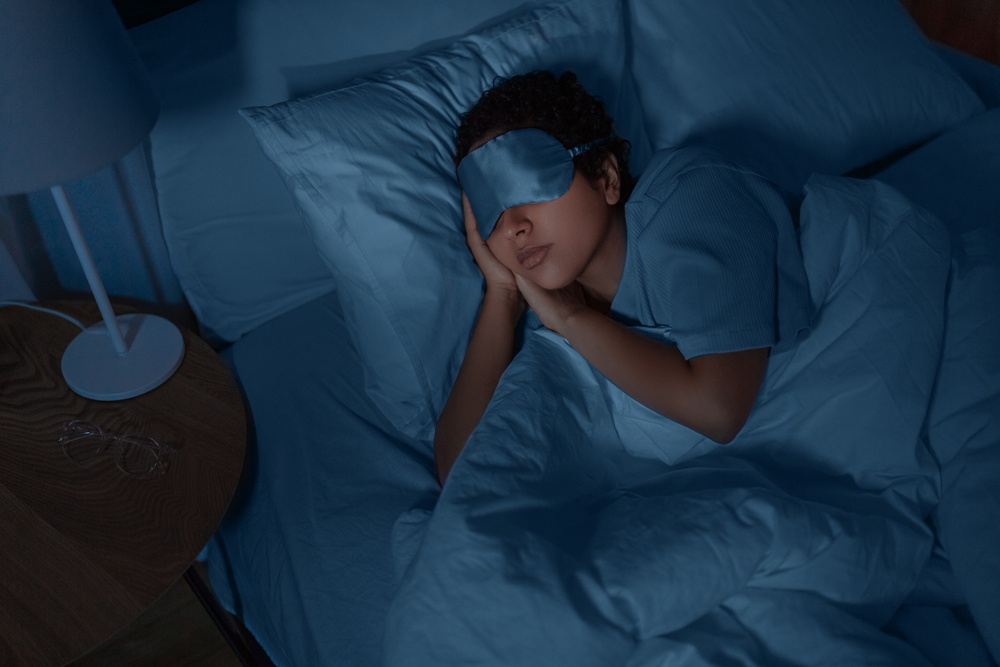Home » Blog » 10 of the Easiest Ways to Care for Your Eyes this Season
10 of the Easiest Ways to Care for Your Eyes this Season
Posted by: Georgia Eye Partners in Eye Health

Do your eyes feel more irritated in the winter? As temperatures drop, the air tends to become drier.
This dry air can negatively impact your skin, sinuses, and eyes. But winter brings other challenges for eye health too – from increased screen time during those cozy indoor days to the intense glare from snow and winter sports risks.
Healthy habits can also be harder to maintain during the winter. Combined with the dry air, this can lead to significant eye discomfort.
However, maintaining good eye health during the winter doesn’t have to be difficult.
Understanding how to protect your eyes during these colder months is crucial for maintaining good vision and comfort all season long. Keep reading to learn 10 of the easiest ways to care for your eyes this season!
1. Keep Wearing Sunglasses Outside

When it’s warm and sunny, it’s easy to remember to wear sunglasses. But when it’s cooler and days are shorter, you might skip them when heading outside.
UV rays from the sun are harmful regardless of the season. Even in winter, it’s crucial to wear sunglasses outdoors and while driving.
When you’re near snow, sunglasses become even more important. The sun reflects off the white surface, intensifying its effects on your eyes.
Regardless of the weather, always choose quality sunglasses that block at least 99% of UV rays. You can look out for a label that tells you how much UV light your sunglasses block out when you buy them.
2. Protect Your Eyes From the Elements
If you enjoy winter sports like skiing or snowboarding, be extra cautious about eye safety. Any sport can pose a risk for eye injury, but this risk increases with snow and high speeds.
Corneal abrasions can occur when debris enters your eye, potentially leading to serious complications. If infected, these abrasions can even result in vision loss.
Always wear protective eyewear, like tinted snow goggles, when participating in winter sports. These goggles protect your eyes from the sun and the snow.
Even if you aren’t doing any high-intensity activities in the snow, you should still wear a hat and face scarf to keep you warm and protect your eyes from snow.
3. Get Some Sunlight, But Limit Your Time Outside
Spending time outdoors is important for your general health. With shorter days in winter, your mental health can be affected.
Getting outside helps you stay mentally healthy and receive vitamin D, which is essential for your physical well-being. However, in cold, dry air, limit your time outdoors.
While a brisk walk can be refreshing, dry air can quickly irritate your eyes. If you wear contact lenses, they may dry out even faster.
Opt for shorter bursts of outdoor time to manage dry air effects. You can also follow the remaining tips to counteract dry eyes.
4. Make Sure Your Home Isn’t Too Dry
While you can’t control outdoor weather, you can manage your home’s environment. Heating your space can make the indoor air as dry as the air outside.
To combat this dryness, consider using one or more humidifiers in your home. You can also set your thermostat below 70 degrees to help maintain humidity while saving on heating costs.
Avoid spending too long near air vents, as direct airflow can dry out your eyes. Also be sure to make sure the head of your bed isn’t near an air vent, as the air will blow directly on your face when you’re sleeping.
5. Eat Right and Stay Hydrated

A variety of vitamins and nutrients can enhance your tear quality. Better tear quality means you’re less likely to develop dry eyes.
Omega-3 fatty acids are particularly beneficial for tear health. Omega 3 can be found in fish, seeds, and walnuts, as well as dietary supplements like fish oil pills.
Dark leafy greens are also excellent for your health. They’re rich in vitamins C and E, which support eye health.
Staying hydrated is just as important as a good diet. Insufficient water intake can lead to dry eyes.
Cold weather may deter you from drinking chilled water. However, you can hydrate with warm beverages like herbal teas (avoid caffeinated teas and coffee for hydration).
Soup is another great way to increase hydration while getting essential nutrients. It’s also perfect for a cold winter evening.
6. Be Careful About Screen Time
During winter, it’s tempting to stay indoors and watch TV. There’s nothing wrong with spending an evening cuddled up on the couch enjoying holiday movies, but you should be cautious about excessive screen time.
Overexposure to blue light, which is emitted by electronic screens, can negatively impact your eye health. It may lead to eye strain, dry eye, headaches, and fatigue.
Limit your screen time where possible. But if you want to have a holiday movie marathon, there are still ways to minimize the effects of digital eye strain.
Keep your TV at a comfortable distance. If you’re using your phone frequently, hold it at least an arm’s length away.
If available, switch your device to warm light mode to reduce blue light emission. Most importantly, remember to blink often, as blinking is what keeps your eyes moist.
You can also use the 20-20-20 rule. This rule states that for every 20 minutes spent looking at a screen, take a 20-second break to look at something 20 feet away, allowing your eyes to rest and refocus while reminding you to blink.
If you use these techniques, you can mitigate many of the harmful effects of excessive screen time. But remember that less screen time is always the best way to keep your eyes healthy.
7. Maintain Good Hygiene
Good hygiene is essential for eye health year-round. Always remember to wash your face, especially if you wear makeup.
During the holidays, friends and family often come to visit, or you may be visiting others. When you’re sharing space, it’s important to remember you should never share eye makeup or makeup brushes to prevent infections.
Even when your eyes feel irritated by the weather, try not to rub your eyes, even with clean hands. If you must touch your eyes to remove debris, ensure your hands are clean, but avoid rubbing.
Rubbing can lead to further irritation. If your eyes feel dry or itchy, consider using over-the-counter eye drops or a wet compress.
If dryness and irritation persist, consult your eye doctor, as you may have dry eye syndrome.
8. Consider Using a Night-Time Eye Mask

Want to give your eyes extra protection while you sleep? A silk or cotton eye mask can be incredibly beneficial during winter months.
An eye mask doesn’t just block out light—it can also create a protective moisture chamber around your eyes. This helps prevent overnight dryness, especially when you’re sleeping with the heat on.
Choose a mask made from breathable, natural materials like silk or cotton. These fabrics are gentle on the delicate skin around your eyes and won’t cause irritation. They also help maintain the right amount of moisture without trapping excess heat.
For extra benefits, try keeping your eye mask in the refrigerator for a few minutes before bed. The cool temperature can help reduce any puffiness or irritation from a long day of winter activities.
9. Create an Eye-Friendly Work Station
With shorter daylight hours in winter, many people find themselves working in artificial light more often. Setting up your workspace properly can significantly impact your eye health during these darker months.
Position your desk near a window if possible, as natural light is easier on your eyes than artificial lighting alone. However, make sure there’s no glare on your screen from the winter sun, as this can cause eye strain.
Consider investing in a desk lamp with adjustable brightness settings. The light should be positioned to illuminate your work area without creating shadows or reflecting off your screen.
LED lights with a color temperature of around 5000K most closely mimic natural daylight and are ideal for reducing eye strain. Your computer monitor should be positioned at arm’s length and slightly below eye level. This positioning helps reduce neck strain and keeps your eyes at their most comfortable viewing angle. During winter months, when you might be working in darker conditions, you may need to adjust your screen’s brightness more frequently as the natural light changes throughout the day.
Remember to keep any heating vents directed away from your face while working, as direct airflow can quickly dry out your eyes. If you can’t adjust the vents, consider using a small desk humidifier to maintain comfortable moisture levels in your immediate workspace.
10. Don’t Forget to Get Your Annual Eye Exam
With the New Year approaching, reflect on your eye exam schedule. If you wear glasses or contacts, are over 50, or are at high risk for eye health issues, annual exams are essential.
If your eyes are healthy, aim for an eye exam at least every two years, starting at age 40. Your eye doctor can provide specific recommendations based on your situation.
Routine eye exams are crucial for maintaining eye health. Regular check-ups allow your doctor to detect issues early, leading to more effective treatment.
Are you overdue for an eye exam? Schedule an appointment at Georgia Eye Partners in Atlanta, GA, today!